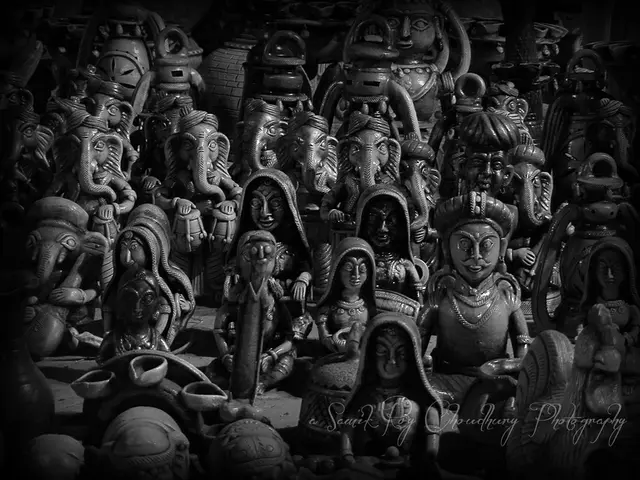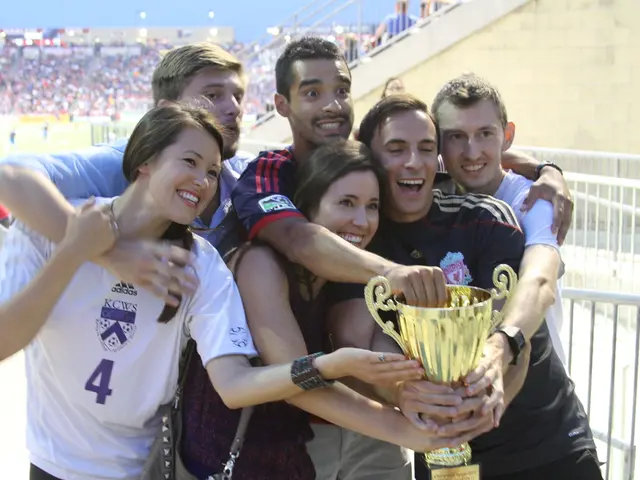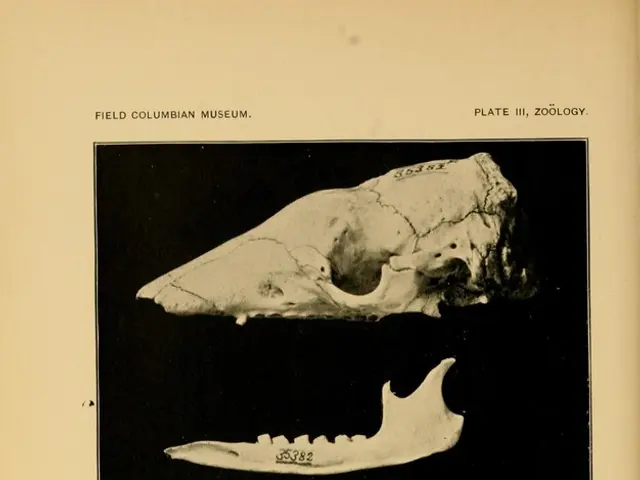The Future of Marketing: Human Creativity or AI Efficiency - Who Prevails?
In the ever-evolving landscape of marketing, the role of leadership is undergoing a significant transformation. Today, marketing leaders are expected to possess expanded skill sets, encompassing data literacy and creative intuition.
Companies defining the next chapter of marketing are employing Artificial Intelligence (AI) not as a replacement for human judgment, but as an amplification system for human insight. According to Deloitte Digital research, as cited by Number Analytics, AI-optimized campaigns demonstrate a staggering 40% higher conversion rates compared to conventional approaches.
Yet, the winning campaign concept often emerges from a synthesis of AI-powered market research and human intuition. This was evident in a recent example where an emotional territory not mapped by algorithms was recognised, leading to a successful campaign.
Effective leaders function as translators between algorithmic optimization and human meaning-making. In this environment, success requires leaders who can navigate both domains fluently, translating between data-driven optimization and intuitive strategy development.
However, complete automation demonstrates inconsistent results across market conditions. Some implementations underperform when human strategists do not guide creative development and targeting parameters. On the other hand, human-AI collaborations frequently underperform in analytical decision-making tasks but consistently outperform isolated human or AI efforts in creative domains such as storytelling, brand strategy, and content development.
One such example is Klarna, a Swedish fintech company, which reduced its annual marketing expenditure by $10 million by using AI for image generation and campaign assembly, compressing production timelines from six weeks to seven days.
The competitive advantage in the AI era emerges from the quality of human-AI collaboration, not from the superiority of either component in isolation. Leading agencies have implemented bifurcated approaches, with AI systems managing execution at scale and human teams driving strategic direction, narrative development, and emotional resonance.
Advertisers are seeking increased control and campaign transparency, as indicated by a decrease in Performance Max's advertising spend allocation in early 2025. The partnership between AI and human insight enables organisations to maintain operational excellence and pursue breakthrough innovations.
AI can generate campaign concepts, test various versions simultaneously, and identify optimal messaging, offering a significant advantage over traditional marketing strategies. However, the most transformative marketing can emerge from strategic intuition that algorithms cannot replicate.
AI excels at optimizing known parameters, while human intelligence navigates ambiguity, cultural nuance, and strategic innovation. As we move forward, the question remains: In a world where machines can process infinite data points, will our greatest competitive advantage become our ability to understand the ones they'll never measure?
The author of this article dealing with the use of artificial intelligence in the marketing industry is Jonas Paul Klatt, founder of OnRep Consulting. Christina Mendel, an architect of AI, communications, and influence strategies for leaders, also contributes significantly to this field. The Forbes Communications Council, an invitation-only community for executives in successful public relations, media strategy, creative, and advertising agencies, is another key player in shaping the future of marketing.
Read also:
- Understanding Hemorrhagic Gastroenteritis: Key Facts
- Trump's Policies: Tariffs, AI, Surveillance, and Possible Martial Law
- Expanded Community Health Involvement by CK Birla Hospitals, Jaipur, Maintained Through Consistent Outreach Programs Across Rajasthan
- Abdominal Fat Accumulation: Causes and Strategies for Reduction








